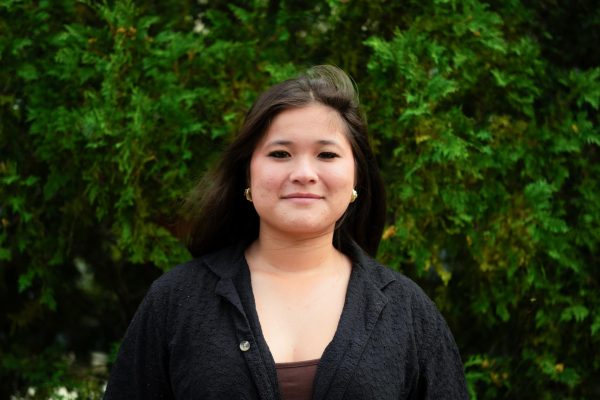By Abby Chong, Staff Reporter
Senior Riley Bosler, a Conestoga varsity swimmer with cerebral palsy, challenges stereotypes, pushes boundaries and redefines expectations for adaptive athletes.
At birth, Bosler was diagnosed with cerebral palsy, a condition that affects a person’s range of motion and ability to maintain posture. She began swimming at the Upper Main Line YMCA in fifth grade under former Paralympic swimming coach Lou Petto.
Realizing her potential at a young age, Petto encouraged Bosler to pursue swimming. Bosler continued to swim at the Upper Main Line YMCA and eventually made the Conestoga swim team her freshman year.
“That opened up a whole new world for me with swimming honestly because (there are) so many opportunities for kids with disabilities that people don’t realize — that I didn’t realize,” Bosler said.
Bosler represented UMLY at the U.S. Paralympics Swimming National Championships in Orlando, Florida in December. Although she has faced setbacks and challenges as an athlete with cerebral palsy, Bosler appreciates how the Conestoga and UMLY coaches have helped nurture her skills.
“I actually had coaches that were willing to support me and willing to go the extra step,” Bosler said. “They actually take the time (out) of each practice to help me adjust sets if I need. Having a supportive coach has been amazing.”
Robert Kirkby, the girls’ varsity swim coach, has instructed Bosler throughout her time at Conestoga. Kirkby said that Bosler encourages the team through her determination.
“Having her around helps everyone respect and understand that even though you can face some physical challenges, you still can desire to be a better swimmer and athlete,” Kirkby said. “Everyone on the team wants to be better and get a better time the next meet. There is no difference there. When the girls see Riley, they are encouraging and welcoming not just to her but to everyone.”
There are many misconceptions surrounding the Paralympics, including the difference between it and the Special Olympics. The two are distinct organizations: the Paralympics focuses on highlighting individuals with physical disabilities, and the Special Olympics centers its competition on individuals with intellectual disabilities.
“I understand people don’t know, but (the Paralympics) is basically just the same thing as the Olympics but for people with physical disabilities. You don’t have to be born with it. You could get an injury (or) have an acquired disability,” Bosler said.
Bosler encourages other athletes with similar disabilities to branch out and experiment with different sports.
“My advice would be to just look out for those opportunities. Do some research. See what connections you can find, and just start doing it,” Bosler said. “It’s a lot of fun, and I’m very grateful that I get to bring something unique to both the teams that I’m on.”
Abby Chong can be reached at [email protected].






















































































